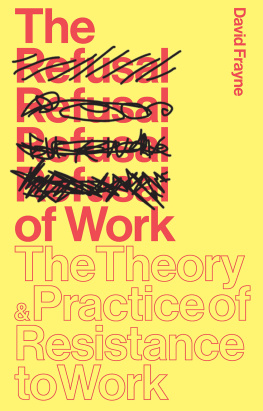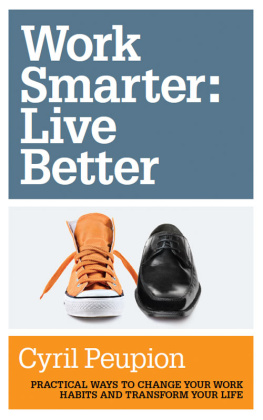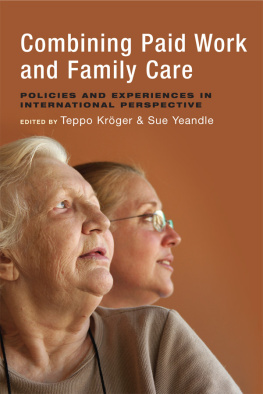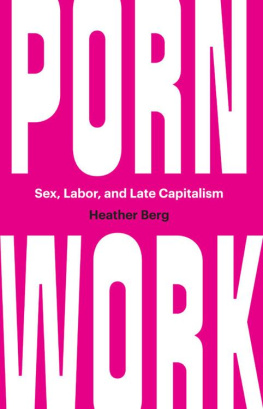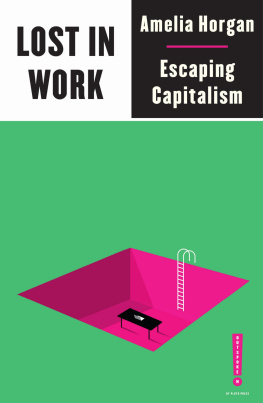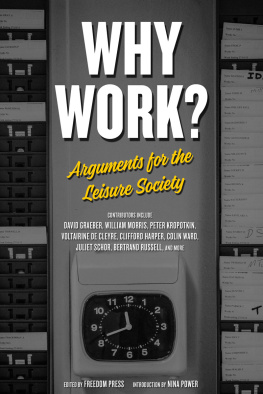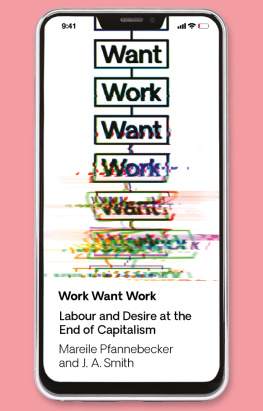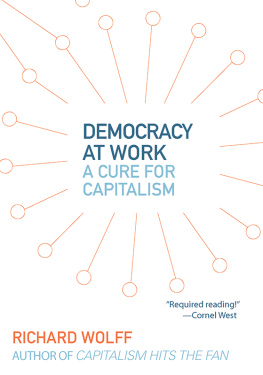DAVID FRAYNE is a lecturer and social researcher based at Cardiff University. His main research interests are consumer culture, the sociology of happiness, alternative education and radical perspectives on work. Twitter: @theworkdogma
For Jen, who loves life.
INTRODUCTION
The work dogma
Its eight oclock in the morning.
When you come out it will be dark.
The sun will not shine for you today.
The above quotation is taken from Elio Petris 1971 film La classe operaia va in paradiso (The Working Class Goes to Heaven). The film gives a fictionalised account of the struggles of the Italian Autonomist movement: a loose coalition of students, workers, feminists and unemployed people who protested in Italy in the 1960s and 1970s. The quote is a slogan, shouted through a megaphone at eight oclock in the morning and intended for the ears of the hundreds of workers who at that time were filing through the factory gates for another day of repetitive and hazardous labour. I quote it here as a perfect illustration of what the Autonomists were fighting for. Their cause went beyond the traditional union demands for fairer pay and better working conditions. They acknowledged the need for greater freedom and equality within work, but also fought for the right of workers to lead richer lives outside of work. The Autonomists protested at the wasted time, lack of variety, and excessive administration of life in capitalist society. They fought for the right of workers to feel the sun on their skin, to play with their children, to develop interests and skills outside the factory, and to rest peacefully at night. We might say that the appeal of the Autonomists was not just to the injustices of exploitation, but also to the workers diminished sensory experience of the world.
Mirroring these concerns, a range of social critics (from the authors of the Frankfurt School to related critics such as Andr Gorz) have set out to question work from an emancipatory standpoint, supporting a vision of social progress based on a reduction of work and an expansion of free-time. These critics did not deny the importance of work, nor did they dismiss the many pleasures to be found in productive activity, but they did propose that a reduction of work might leave people with more time and energy for their own self-development. These critiques of work have provoked their readers by highlighting the casualties of a work-centred society: the time for politics, contemplation, conviviality and spontaneous enjoyment, which have been displaced by capitalisms narrow focus on commercial production and consumption. For todays students, who find themselves pushed through an education system focused largely on socialising the young for a future job role, to read these critiques is to receive an education in desire, and a reminder that time could be spent differently. The radical nature of these theories, however, has earned them a marginal position in academic and public debates. Whilst important issues like pay inequalities and poor working conditions are still discussed, it is rarer for social commentators to question the ethical status of work itself.
Whilst this is certainly true, the alternative vision of social development implied in calls for a less work-centred future has seen a modest resurgence in recent times. Go to any high-street bookshop and alongside those books promising to instruct readers on how to influence others, accumulate fortunes and achieve career success, one can also find a shelf of books telling readers to slow down, find a better worklife balance, and seek happiness by consuming less. In the context of contemporary capitalist societies, narrowly fixated as they are on the activities of working and spending, the ultimate message of these books is a valuable one, tapping into a rippling disquiet about the ways in which work has crept into and colonised our lives. If these popular critiques have ultimately had a limited influence on societys priorities, however, it is perhaps because they have tended to stray too far into the genre of self-help. Their mistake has been to approach the domination of work as primarily a problem of individual habits, and it is fair to say that these books have been rather more conservative when it comes to discussing those systemic economic and political changes which might offer people a more genuine range of lifestyle choices.
More promising than the stagnant discussion of worklife balance is the emergence of a braver critique of the paradigm of economic growth. Conventionally, governments have treated economic growth and life satisfaction as one and the same thing, measuring both of these via the metric of gross domestic product (or GDP) per capita. GDP is an indicator which quantifies a countrys overall economic activity. It accounts for the total amount of earning and spending that took place in a given year, and it is tacitly accepted that a rising level of GDP indicates an overall improvement in national prosperity. Whilst economic growth is undoubtedly crucial for less developed countries, in which subsistence needs remain unmet, a range of commentators in more affluent societies have questioned the value of GDP growth as a social goal and an index of progress. A report commissioned in 2008 by the former French president Nicolas Sarkozy argues that the time is ripe for our measurement system to shift emphasis from measuring economic production to measuring peoples well-being ().

